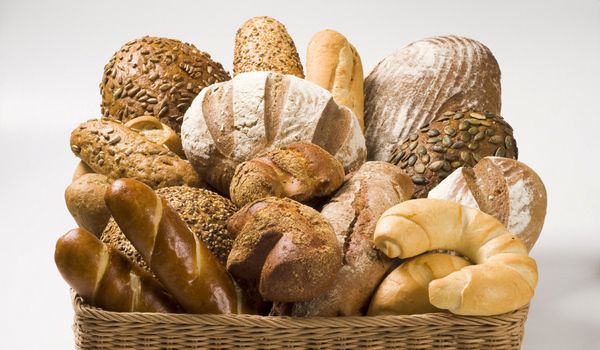Most People Shouldn’t Eat Gluten-Free

Many Americans are considering cutting back on the amount of gluten in their diets or avoiding it altogether. However, nutritionists say that if this is not done carefully, the diet can be unhealthy.
In a recent poll, 30 percent of adults said they wanted to "cut down or be free of gluten," according to The NDP Group, the market-research company that conducted the poll. That's the highest percentage of people to report having this goal since the poll began asking the question in 2009, NDP says.
Gluten is a protein found in many grains, including wheat, rye and barley. It's found in most breads, cereals, pastas and many processed foods, according to WebMD. People who have a condition called celiac disease develop an immune reaction to gluten that damages the intestine, and so they need to avoid the protein. About 1 percent of the population has celiac disease.
For most other people, a gluten-free diet won't provide a benefit, said Katherine Tallmadge, a dietitian and the author of "Diet Simple" (LifeLine Press, 2011). What's more, people who unnecessarily shun gluten may do so at the expense of their health, Tallmadge said.
That's because whole grains, which contain gluten, are a good source of fiber, vitamins and minerals, Tallmadge said. Gluten-free products are often made with refined grains, and are low in nutrients.
If you embrace such a diet, you'll end up "eating a lot of foods that are stripped of nutrients," Tallmadge said. Studies show gluten-free diets can be deficient in fiber, iron, folate, niacin, thiamine, calcium, vitamin B12, phosphorus and zinc, she said.
"You can eat a healthy diet without gluten, but you have to be very knowledgeable, and most people aren't," Tallmadge said. People who go gluten-free may feel better because, to avoid the protein, they end up cutting out desserts and junk foods, thus losing weight. "They mistakenly attribute that to their gluten-free decision," Tallmadge said.
Sign up for the Live Science daily newsletter now
Get the world’s most fascinating discoveries delivered straight to your inbox.
Heather Mangieri, a nutrition consultant and spokesperson for the Academy of Nutrition and Dietetics, agreed. "There's nothing magical about eliminating gluten that results in weight loss," Mangieri said. "Any of us that eliminates or removes cookies and candies from our diets, and replaces them with fruits and vegetables is going to feel better."
Before you switch to a gluten-free diet, you should be evaluated by your family physician, and a specialist who can determine if you have celiac disease. (To be diagnosed with the disease, people should see a gastroenterologist.) Other people who may need to cut back on gluten are individuals who have a wheat allergy — they need to avoid wheat, but not all grains — and people with gluten sensitivity, who may feel better when they eat less gluten, WebMD says.
If you want to go gluten-free, "do it the right way," Mangieri said.
If you eliminate wheat from the diet, make sure to replace it with a healthy, naturally gluten-free grain, such as quinoa or buckwheat, Mangieri said. You should also balance the diet with lots of fruits and vegetables, Mangieri said. Lean meat and low-fat dairy products such as yogurt are also good for a gluten-free diet, Tallmadge said.
Pass it on: If you don't haveceliac disease, a wheat allergy or a gluten sensitivity, you're unlikely to benefit from a gluten-free diet.
This story was provided by MyHealthNewsDaily, a sister site to LiveScience. Follow Rachael Rettner on Twitter @RachaelRettner, or MyHealthNewsDaily @MyHealth_MHND. We're also on Facebook & Google+.

Rachael is a Live Science contributor, and was a former channel editor and senior writer for Live Science between 2010 and 2022. She has a master's degree in journalism from New York University's Science, Health and Environmental Reporting Program. She also holds a B.S. in molecular biology and an M.S. in biology from the University of California, San Diego. Her work has appeared in Scienceline, The Washington Post and Scientific American.











